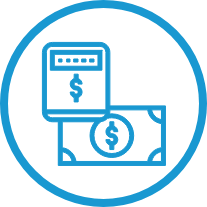blogs
No Results Found
The page you requested could not be found. Try refining your search, or use the navigation above to locate the post.

Top Methods for Tracking Employee Hours
The utilization of your employees is a crucial task for any employer. After all, it’s no use hiring someone if they have nothing to do. Many factors determine the amount of work you provide an employee with. Typically, time-tracking can be used to ensure a manager accurately records an employee’s hours. However, there are many other reasons employers need to track their employees’ hours which can help keep the business running efficiently while meeting compliance standards. In this article, we will discuss the top methods for tracking employee hours.
Pen and Paper
Employees can use their time tracking method if they choose not to use a company-issued time clock or app. This requires employees to manually record their time worked on a timesheet every day or every week. They may also have to write down attendance records for each day or week and other tasks assigned by their supervisors throughout the pay period. This manual process requires employees to stay organized for everything to be accurate at the end of each pay period. It also means that supervisors will need to take extra time each week to review all employee records before finalizing any payroll checks.
Desktop or Kiosk Time Clocks
A desktop time clock is a small unit that employees can use to clock in and out of work. These devices are usually placed on the office desk and are programmed to record the employee’s arrival time. The device has a keypad for punching in and out and an LCD screen to display the current time.
The kiosk time clock is similar to the desktop model but can be used anywhere on your business premises. It would help if you simply connected it to your network or Wi-Fi hotspot, and it will automatically record every employee’s arrival and departure times. You can also set up these devices with multiple passwords so only certain employees can access them.
Mobile Apps
Mobile apps are an increasingly popular way to track employee hours, with many options available for Android and iOS devices. Many apps offer time tracking, expense tracking, and even scheduling tools to help you organize your employees’ schedules from the palm of your hand.
Geofencing and GPS Tracking
Geofencing, which uses GPS technology to determine when an employee enters or leaves a location, is one of the most popular methods for tracking employee hours. It’s easy to set up and relatively inexpensive compared to traditional time clocks. This type of technology works well if no other employees are working alongside your staff at any given time or if they’re all working remotely from home offices (or even satellite offices).
The downside is that it can be unreliable if employees don’t carry their phones with them all day long – which many don’t – or if they work near each other and cross paths often without moving outside their geofences.
Biometric Clock-in
Biometric clock-ins are one of the most popular methods for tracking employee hours. Biometric clocks use fingerprints, hand geometry, or facial recognition to identify employees.
The benefit of biometric technology is that it’s highly accurate and easy to use. Employees can clock in or out using a smartphone app or swiping a card through a reader. The employee places their finger on the scanner, and it reads their fingerprint, which matches it against a database of authorized employees. Once the employee’s identity is confirmed, they’re automatically logged into the system and paid for their time worked.
Some companies also use biometrics as part of a two-step verification process when logging in remotely from home or another location without an employee ID card. It can also be used as part of an exit procedure for those leaving the office for lunch or another break during the day; instead of swiping their ID card to leave, an employee can place their finger on the scanner before walking out the door.
Browser Plug-Ins and URL Tracking
Browser plug-ins are a quick, easy way to record how much time your employees spend online. They can also be customized to only record certain sites or pages on specific days and times. For example, if you want to make sure your employees aren’t spending too much time on social media during work hours, you can block access to Facebook, Twitter, and other sites during certain hours on certain days.
URL tracking is similar to browser plug-ins in that it tracks the websites employees visit while logged in or using company computers. However, instead of recording the sites themselves, URL tracking records the URLs they visit (such as “www.facebook.com.” This makes it easier to keep tabs on which sites are most popular with your workforce than browser plug-ins because they won’t record every page visit as a single entry in their logs — only.
Wrapping Up
While there are many different time-tracking tools on the market, you will find that these methods have worked for many businesses. There’s no right or wrong way to track your employee hours, as long as it’s an effective and accurate way to measure them. Just remember to be consistent and make sure that you monitor your employees’ performance throughout their shifts to keep accurate times. When you work with a team of employees with a similar schedule each week (or day), it will be easier for everyone to manage their time when it comes to performing a weekly evaluation and comparing the results to previous months.
